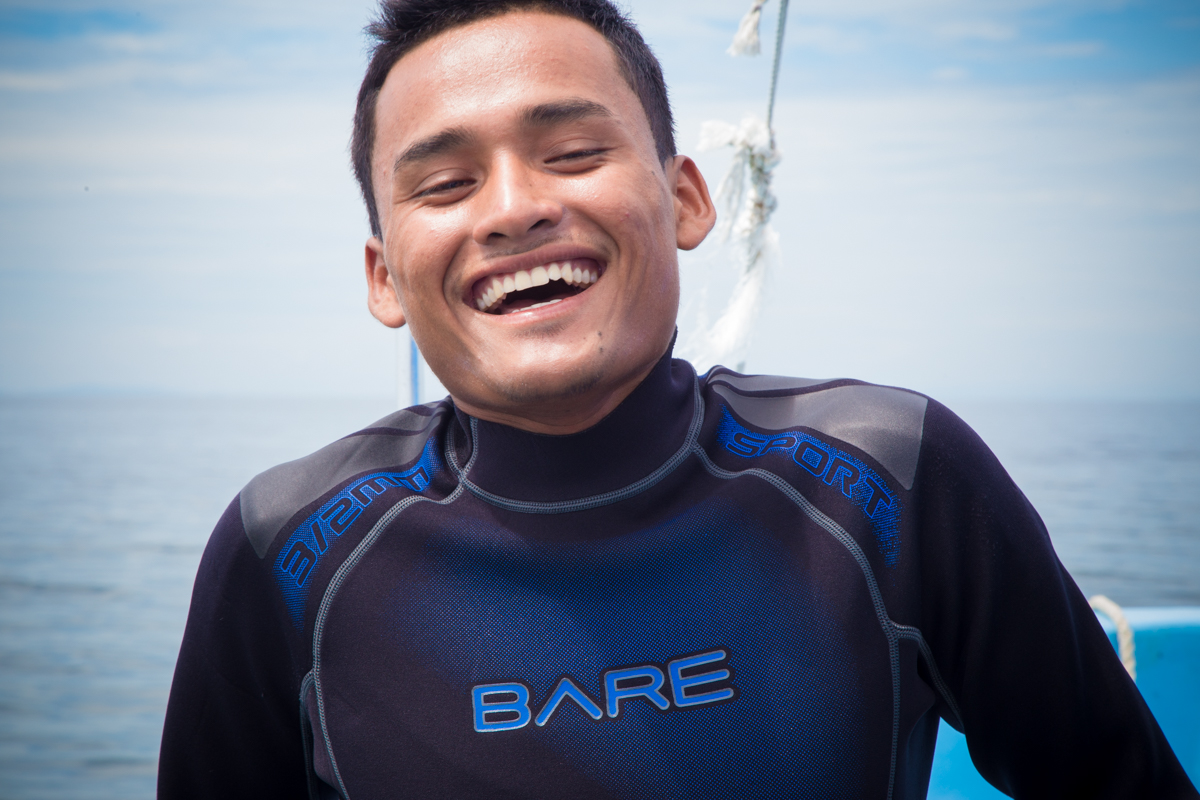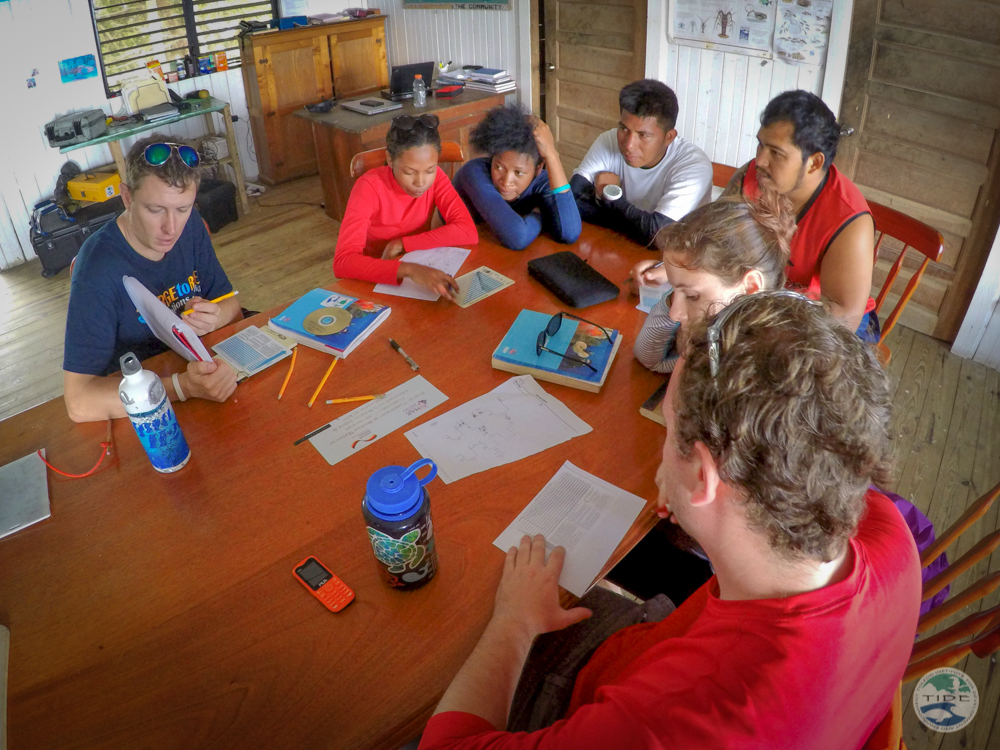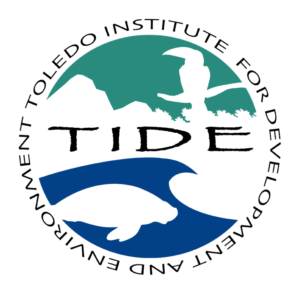Community Researcher Training Program
TIDE received a National Energy Globe Award for this program in 2018.
Training the next generation of Belizean conservationists

THE NEED
Managing protected areas requires vast amounts of scientific data and local ecological knowledge. Monitoring fisheries, endangered species, ecosystem health, and water quality over 100, 000 acres of water in the Port Honduras Marine Reserve is no easy task. Prior to 2010, TIDE’s rangers carried out monitoring activities in addition to their enforcement and management responsibilities. Not only were the rangers overloaded with work, but they often lacked the scientific knowledge and background to carry out such work effectively. With rising concerns over the quality of data needed for effective management, TIDE looked for other solutions.
THE SOLUTION
In order to improve efforts to collect data, monitor the reserve, and improve fisheries enforcement and management in the Port Honduras Marine Reserve, TIDE began a community researcher training program to fill the gap. Since 2010, each year TIDE has selected 5 young people from communities adjacent to PHMR to helps its marine biologist conduct monitoring of fisheries, endangered species, ecosystem health, and water quality in the reserve.
ABOUT THE PROGRAM
The program is helping to train the next generation of Belizean conservationists. Several of our Community Researchers have gone on to full-time positions at other conservation organizations in Belize. Participants in the two-week training program receive comprehensive training in SCUBA diving, various environmental monitoring techniques, ecology, and safety. Those who displayed superior skills and stewardship qualities were subsequently employed to conduct ongoing monitoring in PHMR as part of the TIDE research and monitoring team.
Training Received:
- SCUBA diving (PADI Open Water Diver)
- GPS use and basic GIS analysis
- Emergency first response
- Basic environment science, including basic coral reef ecology, land-sea interconnectivity, and the impact of human activities
- Scientific monitoring and assessment
Ongoing Monitoring:
- Coral
- Seagrass
- Birds
- Water quality, nutrient + sediment analysis
- Mangrove ecosystem productivity
- Turtle nests
- Lionfish
- Fisheries assessment (conch, lobster, sea cucumber and finish through underwater, catch and market surveys)
- Collection and observation of fish otoliths

A WIN-WIN SCENARIO
Part of TIDE’s mission is to foster community participation in resource management and sustainable use of ecosystems. As ambassadors for conservation and sustainable management, the community researchers communicate with resource users about human impacts on ecosystems in a way they can understand. Building this rapport has created a deeper understanding and greater stewardship among the community at large. Fishers are starting to buy-in to the idea that resource management I something that can be done by the community, for the community.
Furthermore, the program has increased TIDE”s research and monitoring capacity in two ways:
- It has enabled the monitoring of more sites more often and;
- The surveys are conducted at a higher standard that would not be possible without the help of community researchers.
Up to 10 community researchers are currently employed by TIDE on a part-time basis. As a result of the training, participants are found to be more employable, with a unique and highly sought after skill set to add to their resumes. This is enabling participants to find good salaried positions in the local community.
HOW TO BECOME A COMMUNITY RESEARCHER
In order to be eligible to apply to become a community researcher, you must:
- Be from the local community
- Be aged 17-25
- Have graduated from high school
- Be able to swim
- Be contactable by phone and email
- Demonstrate an interest in the environment and a willingness to learn
[my-instagram-feed user_id=”17841400998750596″ skin_id=”1631″ links_new_tab=”1″]
